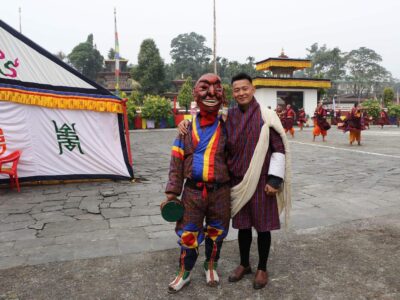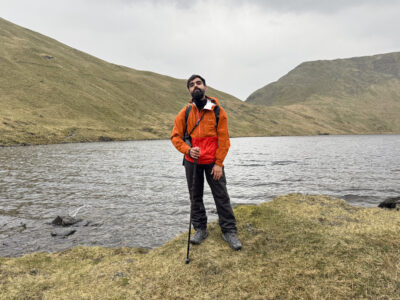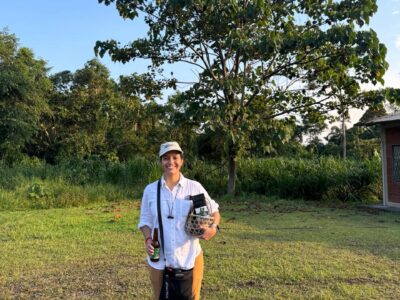Before Phoebe Anderson moved from London to New York to begin her education at Columbia University, she took a year off from academia to work as a teaching assistant for students with special educational needs and a caregiver for the elderly. These experiences taught her about the importance of community. Anderson also traveled to Costa Rica and Mexico to work on permaculture farms, where she learned the intricacies of farm work and spent her free time running on the beach.

Anderson is now a student in the Undergraduate Program in Sustainable Development and a cross-country runner for the Columbia team. In the Q&A below, she reflects on her decision to join the program, the importance of extracurricular activities and her future goals.
What drew you to the Sustainable Development major?
I was drawn to the program because of the wide breadth of classes I could take as part of the major. The courses ranged from policy to climate science, which excited me as I knew I wanted to challenge myself to understand all dimensions of sustainable development.
What are some of your career aspirations? How has being a part of the Sustainable Development program affected those aspirations?
I would love to work in the water sector, and more specifically in a job that tackles water poverty and provides solutions to regional water scarcities. I have enjoyed learning about this topic in multiple classes. One of my favorites was the hands-on course about New York City watershed, during which we took a weekend field trip to learn about the source of New York’s water in the Catskills Mountains and about the layers of stakeholders involved in managing the catchment. I also enjoyed the U.S. Water and Energy Policy course, in which I learned about key legal case studies and their connection to the development of U.S. water policy and then to mapping water quality data in Environmental Data Analysis.
Can you share more about your athletic journey?
I started out playing lacrosse. I slowly realized I wasn’t great at the skills part of the game and largely just enjoyed running around with my friends. So I decided to pursue running with the local athletics club and was inspired both by my first opportunity representing England in 2020 and by the people I got to meet and the places I got to visit for my runs.
What does a typical day look like for you as a student athlete? How do you balance academics and sports?
My day is packed with back-to-back classes, training and eating. It always starts with a big breakfast, then class, practice, lunch, some more classes, sometimes strength work, library and finishing up with dinner with my friends and a good night of sleep. I usually get 9 to 10 hours of sleep so I can train and work at my best. The entire process is made easy by the fun and interesting people around me that make the work and training load seem a whole lot lighter.
What has been your proudest moment in your athletic career so far?
My proudest moment was being an NCAA All-American during the 2023 cross-country season. After getting a serious illness and missing the outdoor NCAA [track and field competition] by a whisker in May and the U23 European Championships, I had to rebuild my momentum for the cross-country season. I remained determined to achieve the goal of All-American. It was made even more fun by the great friends that trained alongside me and came to support me on the day!
What are some challenges you’ve faced as a student athlete, and how did you overcome them?
I have struggled with injury and illness at peak periods of both competition season and key training leading up to the postseason. I have learned how to limit the onset of these occurrences by recovering better, organizing my training, and managing academic stress through yoga and reading before bed.
What advice would you give to other student athletes who aspire to excel in their sport while maintaining academic success?
Surround yourself with like-minded, motivated people because they will support you on your best days and will also be there for you when everything is not going according to plan. It’s been great to have friends who share my interests outside of lacrosse so I can get a mental break from the (sometimes) monotonous nature of training. They can challenge me to think about topics I haven’t explored before.
I would also encourage students to take classes they’re genuinely interested in because that will prevent the work from feeling taxing. Lastly, go to office hours if possible, as these have always been my chance to clarify lectures I might have missed for meetings and to build connections with TAs and professors.



